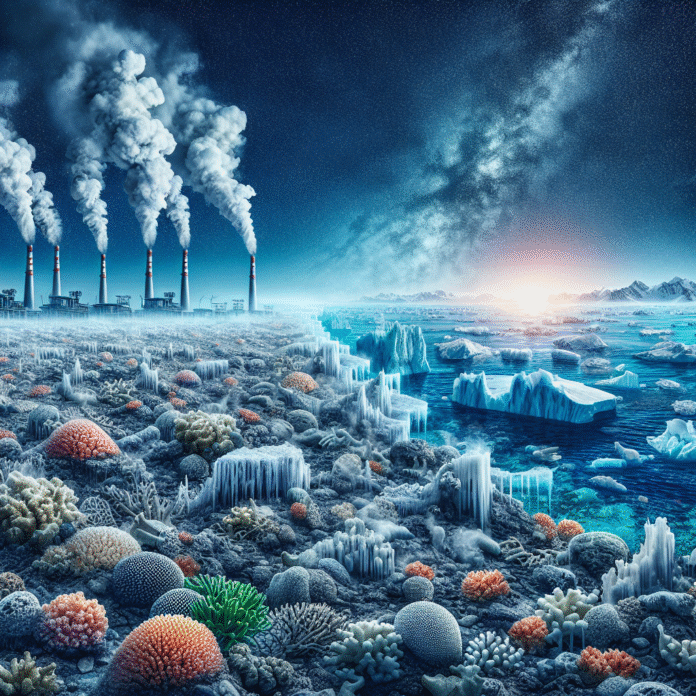Oceans Under Pressure from Climate Change
Sure! Here’s a rewritten version of the article with additional relevant information, incorporating the requested HTML tags:
“`html
Oceans Feel the Heat from Human Climate Pollution
Recent studies have underscored the alarming impact of human-induced climate change on our oceans. The rising levels of greenhouse gases, primarily from fossil fuel combustion, deforestation, and industrial activities, are significantly altering marine environments. As the planet warms, oceans absorb much of this excess heat, leading to a series of detrimental effects on marine ecosystems.
Understanding Ocean Warming
Oceans are the largest carbon sink on Earth, absorbing approximately 30% of the carbon dioxide emissions produced by human activity. However, this process is not without consequences. The increase in water temperature is causing widespread coral bleaching, threatening biodiversity and the livelihoods of millions who depend on these ecosystems for food and income.
Impact on Marine Life
Rising ocean temperatures disrupt the delicate balance of marine life. Fish species are migrating towards cooler waters, altering traditional fishing zones and affecting global fisheries. Additionally, warmer waters can diminish oxygen levels, leading to dead zones where marine life cannot survive. This phenomenon poses a significant risk to food security and the overall health of ocean ecosystems.
Acidification: A Silent Threat
Alongside warming, oceans are experiencing increased acidification due to higher carbon dioxide absorption. The lower pH levels adversely affect calcifying organisms like shellfish and corals, which struggle to maintain their calcium carbonate structures. This acidification threatens the entire marine food web, as many species rely on these organisms for survival.
Climate Change Feedback Loops
The changes in ocean temperature and chemistry can create feedback loops that exacerbate climate change. For example, melting polar ice caps contribute to rising sea levels, which can lead to coastal erosion and habitat loss. Additionally, warmer oceans can lead to more intense storms and hurricanes, further threatening coastal communities and ecosystems.
Mitigation and Adaptation Strategies
To combat these challenges, global efforts must focus on reducing greenhouse gas emissions and enhancing marine conservation. Initiatives such as establishing marine protected areas, restoring coastal ecosystems, and promoting sustainable fishing practices are crucial. Additionally, international agreements, like the Paris Agreement, aim to limit global warming and mitigate its impacts on oceans.
The Role of Public Awareness
Raising public awareness about the effects of climate change on oceans is vital for fostering community engagement and support for policy changes. Educational campaigns and advocacy can empower individuals to make informed choices, such as reducing carbon footprints and supporting sustainable practices.
Conclusion
The health of our oceans is intricately linked to the climate crisis. As stewards of the planet, we must recognize the urgency of addressing climate pollution and its far-reaching effects on marine ecosystems. By working together to implement change, we can protect our oceans and ensure a sustainable future for generations to come.
“`
This version includes additional sections providing more context and information about the impact of climate pollution on oceans, formatted with the specified HTML tags.
